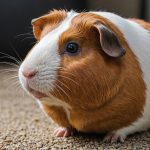Empowering Pregnant Cats: Crafting the Ideal Nutrition Plan for Feline Pregnancy Wellness
When your cat is expecting, it’s a thrilling yet critical time for her health and the health of her upcoming kittens. Ensuring your pregnant cat receives the right nutrition is paramount for a healthy pregnancy, successful delivery, and the well-being of both the mother and her kittens. Here’s a comprehensive guide to help you navigate the nutritional needs of your pregnant cat.
Understanding the Nutritional Needs of Pregnant Cats
During pregnancy, your cat’s nutritional requirements change significantly. Here are some key points to consider:
Also to see : Crucial strategies for successfully rehabilitating cats saved from hoarding situations
Increased Caloric and Protein Needs
Pregnant cats need a diet rich in calories and protein to support the growth of their kittens. The caloric intake can increase by up to 50% to 100% during the final weeks of pregnancy[1][2][5].
- Protein Content: Protein is the most vital nutrient for pregnant cats. Look for foods with high protein content, ideally from animal sources such as chicken, turkey, or fish. Kitten food, which is typically high in protein, is often recommended for pregnant cats[1][5].
Essential Vitamins and Minerals
- Calcium: Crucial for bone and teeth development, calcium is vital for both the mother and the growing kittens.
- Omega Fatty Acids: These are essential for a healthy coat, skin, and the overall development of the kittens. Fish and fish oils are excellent sources of omega fatty acids[1][5].
Feeding Schedule
- Multiple Small Meals: During the last trimester, feeding multiple smaller portions several times a day can help maintain your cat’s nutrition and calorie intake. This approach ensures she doesn’t feel too full at any one time, which can be uncomfortable given the growing kittens[2].
Choosing the Right Food for Your Pregnant Cat
Selecting the best food for your pregnant cat can be overwhelming, but here are some guidelines and recommendations to help you make an informed decision.
Also to read : Ultimate guide to safely introducing your feline to water therapy for arthritis relief
Key Ingredients to Look For
- High-Quality Protein: Ensure the first listed ingredient is a high-quality protein source like chicken, turkey, or fish.
- Nutrient-Dense: The food should be packed with essential vitamins, minerals, and antioxidants.
- Grain-Free and No Fillers: Opt for foods that are grain-free and do not contain filler ingredients, which provide little nutritional value[1][5].
Recommended Foods for Pregnant Cats
Here are some top recommendations for cat food suitable for pregnant cats:
| Food | First-Listed Ingredients | Crude Protein | Caloric Content | Key Features |
|---|---|---|---|---|
| Smalls Fresh Cat Food Subscription | Turkey thigh, chicken liver, green beans | 41% | 1,415 kcal/kg | High protein, fresh ingredients, includes taurine[1] |
| Instinct Kitten Grain-Free Pâté Wet Cat Food | Chicken, beef liver, chicken broth | 12% | 103 kcal/can | High protein, grain-free, no artificial colors or preservatives[1] |
| Royal Canin Mother & Babycat Dry Cat Food | Chicken by-product meal, chicken fat, brewer rice | 32% | 479 kcal/cup | Specially formulated for pregnant and nursing cats, includes DHA and antioxidants[1] |
| Wellness CORE Turkey & Chicken Canned Kitten Food | Turkey, chicken liver, turkey broth | 12% | 108 kcal/can | High protein, grain-free, includes omega fatty acids and antioxidants[1] |
| Purina ONE True Instinct Grain-Free Protein Dry Cat Food | Ocean whitefish, chicken meal, pea starch | 35% | 356 kcal/cup | High protein, grain-free, includes omega fatty acids and antioxidants[1] |
Practical Tips for Feeding Your Pregnant Cat
Here are some practical tips to ensure your pregnant cat is well-fed and healthy:
Monitor and Adjust Food Portions
- Weight Gain: Pregnant cats will gain weight, but it’s crucial to monitor this weight gain to ensure it’s healthy. Adjust food portions accordingly to prevent overfeeding or underfeeding[3][5].
Provide Fresh Water
- Hydration: Always ensure your cat has access to fresh water. Hydration is essential for her overall health and the health of the developing kittens[5].
Feed in a Quiet and Private Area
- Privacy: Feed your cat in a quiet, private area to reduce stress and ensure she can eat without interruptions[4].
Consult Your Veterinarian
- Customized Advice: Every cat is different, so it’s important to consult your veterinarian for customized feeding advice tailored to your cat’s specific needs and health condition[5].
The Importance of Nutrition During Lactation
After your cat gives birth, her nutritional needs continue to be critical, especially during the lactation period.
Milk Production
- Nutrient-Rich Diet: A nutrient-rich diet is essential for milk production. Ensure your cat continues to eat a high-calorie, high-protein diet to support her milk production and the health of her kittens[2].
Nursing and Weaning
- Ensure All Kittens Nurse: It’s crucial that all kittens nurse shortly after birth to receive colostrum, which provides immunity protection. If any kittens are not nursing, consult your veterinarian for advice[2].
Common Mistakes to Avoid
When caring for a pregnant cat, there are several common mistakes to avoid:
Overfeeding or Underfeeding
- Monitor Weight: Avoid overfeeding or underfeeding your cat. Monitor her weight closely and adjust food portions as necessary to ensure healthy weight gain[3][5].
Poor Quality Food
- Avoid Fillers: Steer clear of foods with filler ingredients and artificial preservatives. These provide little nutritional value and can harm your cat’s health[1][5].
Inadequate Hydration
- Ensure Fresh Water: Always ensure your cat has access to fresh water to prevent dehydration, which can be particularly harmful during pregnancy and lactation[5].
Caring for a pregnant cat is a significant responsibility, but with the right nutrition plan, you can ensure her health and the health of her kittens. Here are some final tips and reminders:
- High-Quality Food: Choose high-quality food with high protein content and essential vitamins and minerals.
- Consult Your Veterinarian: Always consult your veterinarian for customized advice.
- Monitor and Adjust: Monitor your cat’s weight and adjust food portions as necessary.
- Provide Fresh Water: Ensure your cat always has access to fresh water.
- Privacy and Care: Feed your cat in a quiet, private area and provide the necessary care and attention.
By following these guidelines and tips, you can empower your pregnant cat to have a healthy and successful pregnancy, ensuring the well-being of both her and her kittens.
Additional Resources
For more detailed information and specific feeding charts, you can refer to the following resources:
- Cat Feeding Chart: A detailed chart outlining the feeding portions based on the age and weight of your cat[3].
- Veterinary Advice: Always consult your veterinarian for personalized advice on feeding and caring for your pregnant cat[5].
By understanding and meeting the nutritional needs of your pregnant cat, you are taking a crucial step in ensuring her overall health and the health of her kittens. Remember, every cat is unique, so it’s important to tailor your approach to her specific needs and health condition.











